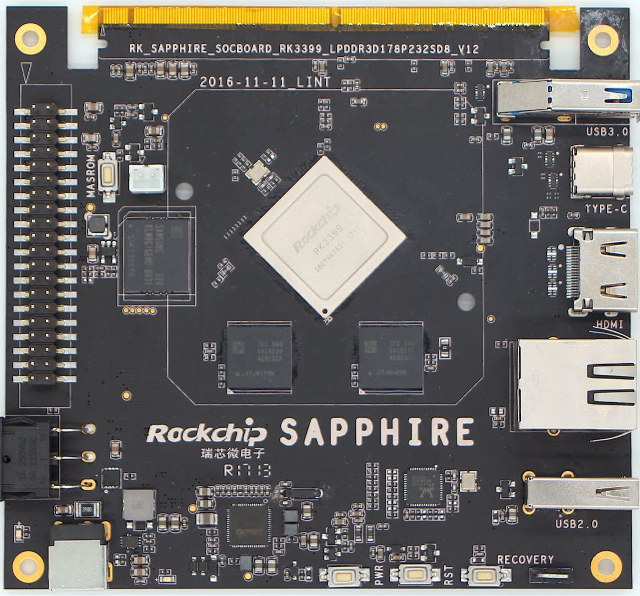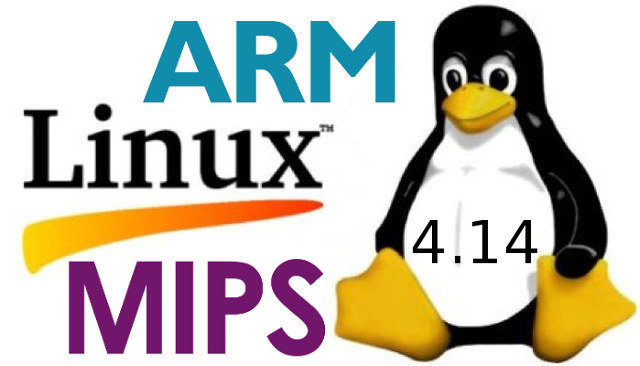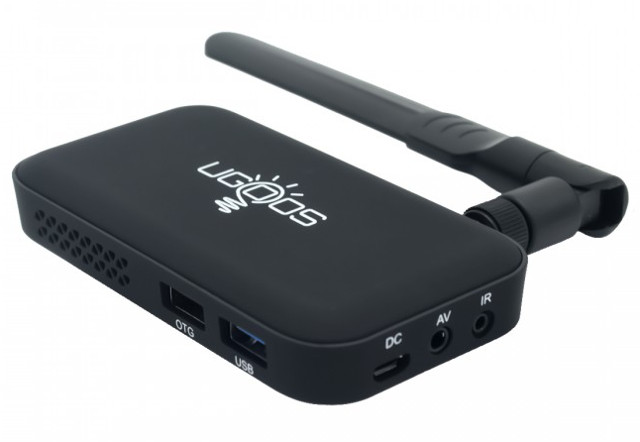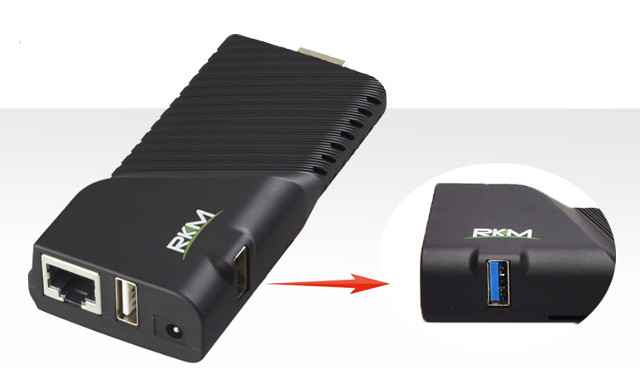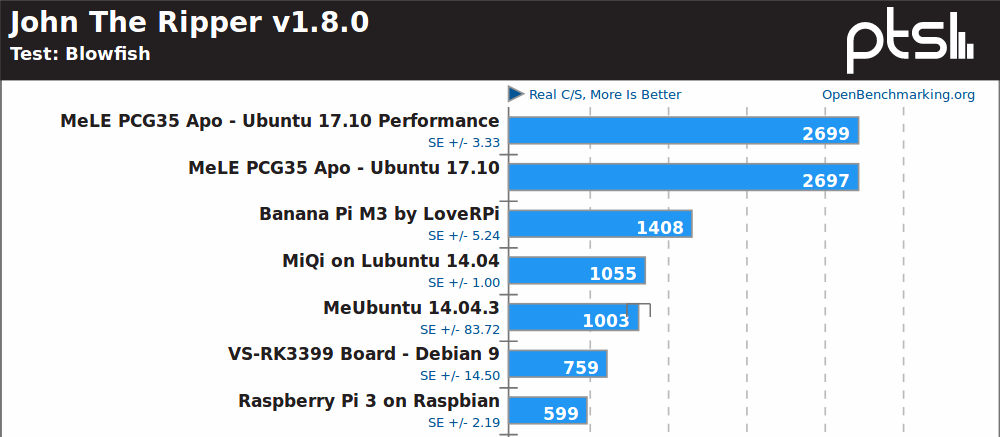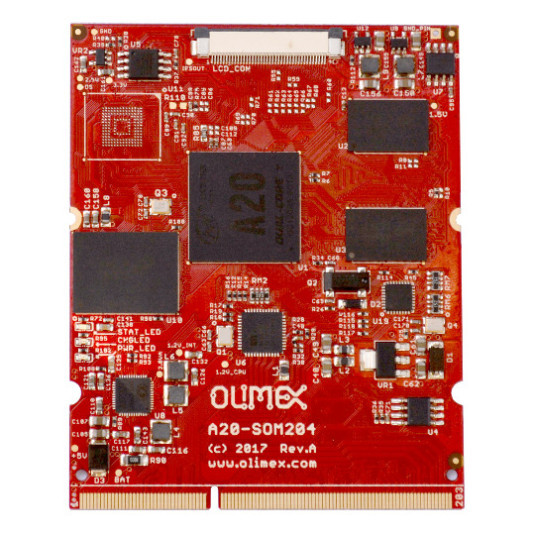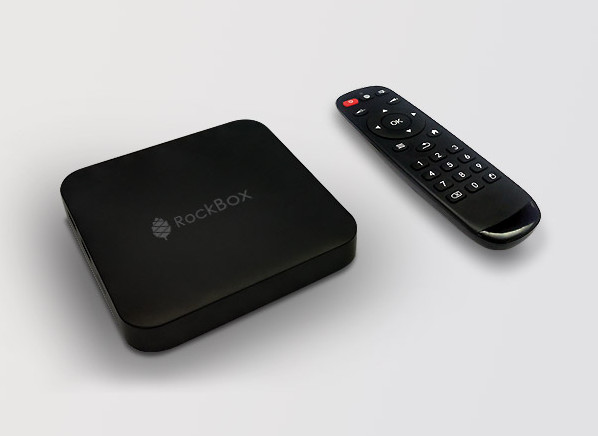Black Friday is coming soon, so we’ll start to see more an more interesting deals in the day ahead. Last summer, I wrote about what should be the cheapest RK3399 development board: Sapphire, Rockchip’s own evaluation board that sold for $75… on Taobao with limited availability. So not exactly the easiest board to get. But today, I’ve learned that Varms, the company behind ROCK960 board, was selling Sapphire board for the same $75, plus shipping ($20 when I tried) with “many boards in stock”. Just a quick reminder about the specifications: SoC – Rockchip RK3399 hexa-core big.LITTLE processor with two ARM Cortex A72 cores, four Cortex A53 cores, and an ARM Mali-T860 MP4 GPU System Memory – 4 GB LPDDR3, dual channel Storage – 8 GB eMMC flash, micro SD card Video Output / Display Interfaces – 1x HDMI 2.0 up to 4K @ 60 Hz; MIPI DSI, eDP, LVDS via MXM […]
Linux 4.14 Release – Main Changes, ARM & MIPS Architecture
Linus Torvalds has announced the release of Linux 4.14: No surprises this week, although it is probably worth pointing out how the 0day robot has been getting even better (it was very useful before, but Fengguang has been working on making it even better, and reporting the problems it has found). Sure, some of the new reports turned out to be just 0day doing things that just don’t work (ie KASAN with old gcc versions, but also doing things like loading old ISA drivers in situations that just don’t make sense – remember when you couldn’t even ask if the hardware existed or not, and just had to know), but even then it’s been all good. The appended shortlog is obviously only for the (small) haul since rc8, and it really is tiny. Not very many commits, and they are small. The biggest thing that stands out in the diffstat […]
Ugoos UM4 TV Box/Dongle Runs Android 7.1.2 with Some Uncommon Features
Ugoos UM3 was launched in 2014 with Android 4.4 on Rockchip RK3288 processor, and could be described a a tiny TV box, or large TV stick. That form factor must have had some success, and they later launched AM2 model powered by Amlogic S905 plus Android 6.0. The company has now just launched Ugoos UM4 with the same form factor but with Rockchip RK3328 processor running Android 7.1.2. Ugoos likes to add some software features often not found on other devices, and that would normally require hacking the firmware, or purchasing apps. Ugoos UM4 specifications: SoC – Rockchip RK3328 quad core Cortex A53 processor with ARM Mali-450MP GPU System Memory – 2GB DDR4 memory Storage – 16 GB eMMC flash (8GB optional) + micro SD card slot up to 32 GB Video & Audio Output – HDMI 2.0a female port up to 4k @ 60 fps with CEC and HDR […]
Rikomagic RKM V3 Rockchip RK3328 TV Stick Launched for $63
We’ll know find plenty of devices powered by Rockchip RK3328 from TV boxes to development boards, but if you are interested in getting an Android TV stick based on the processor, I’m only aware of Rikomagic RKM V3 which the company unveiled in September. However, at the time the TV dongle was not for sale yet, and the company has just launched it for $62.90 including shipping on Aliexpress. RKM V3 specifications have not changed since the announcement, except we can have info about size and weight: SoC – Rockchip RK3328 quad core Cortex A53 processor @ 1.5 GHz with Mali-450MP2 GPU System Memory – 2 GB RAM Storage – 8 GB eMMC flash + micro SD card up to 32 GB Video & Audio Output – HDMI 2.0a up to 4K @ 60 Hz with HDR10 and HLG support Video Codec – 4K VP9, H.265 and H.264. 1080p VC-1, […]
Linux Benchmarks – Intel J3455 Apollo Lake vs Z3735F Bay Trail vs RK3399 and Other ARM Platforms
Since I’ve just installed Ubuntu 17.10 on MeLE PCG35 Apo, I decided I should also run some benchmarks comparing with other ARM and x86 Linux platforms I’ve tested in the past.I was particularly interested to compare the performance of Intel Apollo Lake processors (Celeron J3455 in this case) against higher end ARM processors like Rockchip RK3399 (2x A72, 4x A53) since systems have a similar price (~$150+), as well as against the older Bay Trail processor to see the progress achieved over the last 2 to 3 years. To do so, I used Phoronix Benchmark Suite against Videostrong VS-RK3399 results (RK3399 development board):
|
1 2 3 4 |
sudo apt install php-cli php-gd php-xml php-zip wget http://phoronix-test-suite.com/releases/repo/pts.debian/files/phoronix-test-suite_7.4.0_all.deb sudo dpkg -i phoronix-test-suite_7.4.0_all.deb phoronix-test-suite benchmark 1709271-TY-1704029RI26 |
The benchmark first issued a warning about “powersave” governor, but I still went ahead, and once completed I change it to “performance” governor:
|
1 2 |
sudo apt install cpufrequtils sudo cpufreq-set -r -g performance |
…and ran the tests again. All results are available on OpenBenchmarking. Let’s address the governor results first. cpufreq-info reports that powersave governor […]
OpenBSD 6.2 Adds Support for Orange Pi PC 2, Firefly-RK3399
OpenBSD has been supporting 32-bit (ARMv7) and 64-bit (ARM64) ARM targets, but the just released OpenBSD 6.2 adds support for two more ARM64 boards: Orange Pi PC 2 and Firefly-RK3399. Those two add to the ARM64 list comprised of Raspberry Pi 3, Pine A64/A64+, and AMD Opteron A1100 based development board and SoftIron OverDrive 1000 servers. Other platforms based on Allwinner A64 & H5, and Rockchip RK3399 could likely also be supported. If you want to try it on your board, visit OpenBSD 6.2 ARM64 page to download the files: INSTALL.arm64 – Installation notes SHA256 – Output of the cksum(1) program using the option -a sha256, usable for verification of the correctness of downloaded files. SHA256.sig – The above file, signed with the OpenBSD signing key for the 6.2 release, usable for verification of the integrity of the above file, and thus of the downloaded files. miniroot62.fs – A miniroot […]
Olimex Introduces Universal Systems-on-Module with 204-pin SO-DIMM Edge Connector
Olimex has designed several system-on-modules (SoM) over the years for on various processors such as Rockchip RK3188, TI AM3352, or Allwinner A20, and each time they focus on exposing as many pins as possible from the SoC. That’s nice for some application, but it also means SoM with different processor are not compatible, and you can’t simply design a single baseboard for all those SoMs. Olimex then realized many customers wanted an upgrade path for the SoM without having to redesigned the baseboard, and most were using the same common interfaces, so a family of compatible SoMs was needed. While there are already many system-on-module standards available, the company decided to roll their own SoM form factor based on the 204-pin SO-DIMM edge connector. The first SoM based on the standard will be A20-SOM204 powered by the popular Allwinner A20 processor. All SoM following this standard will expose the following […]
Popcorn Hour RockBox Basic TV Box To Leverage ROCK64 Board Firmware Images
Pine64 launched ROCK64 development board powered by Rockchip RK3328 processor a few months ago. The board exposes fast interfaces like Gigabit Ethernet and USB 3.0, and support 4K video playback, and runs Android 7.1 or various Linux distributions such as Ubuntu 16.04 and others. Pine64 and Cloud Media companies share some of the same owners, and RK3328 being a TV box processor, it should not come as a surprise that Cloud Media has introduced Popcorn Hour Rockbox Basic TV box based on the processor. While the box is running Android 7.1 by default, it will also be support alternative operating systems such as LibreELEC, Android TV OS, Ubuntu, etc… thanks to the work of Pine64/Rock64 community. Popcorn Hour RockBox Basic specifications are quite standard: SoC – Rockchip RK3328 quad core Cortex A53 processor @ 1.5 GHz with Mali-450MP2 GPU System Memory – 1 GB LPDDR3 Storage – 8 GB eMMC […]


